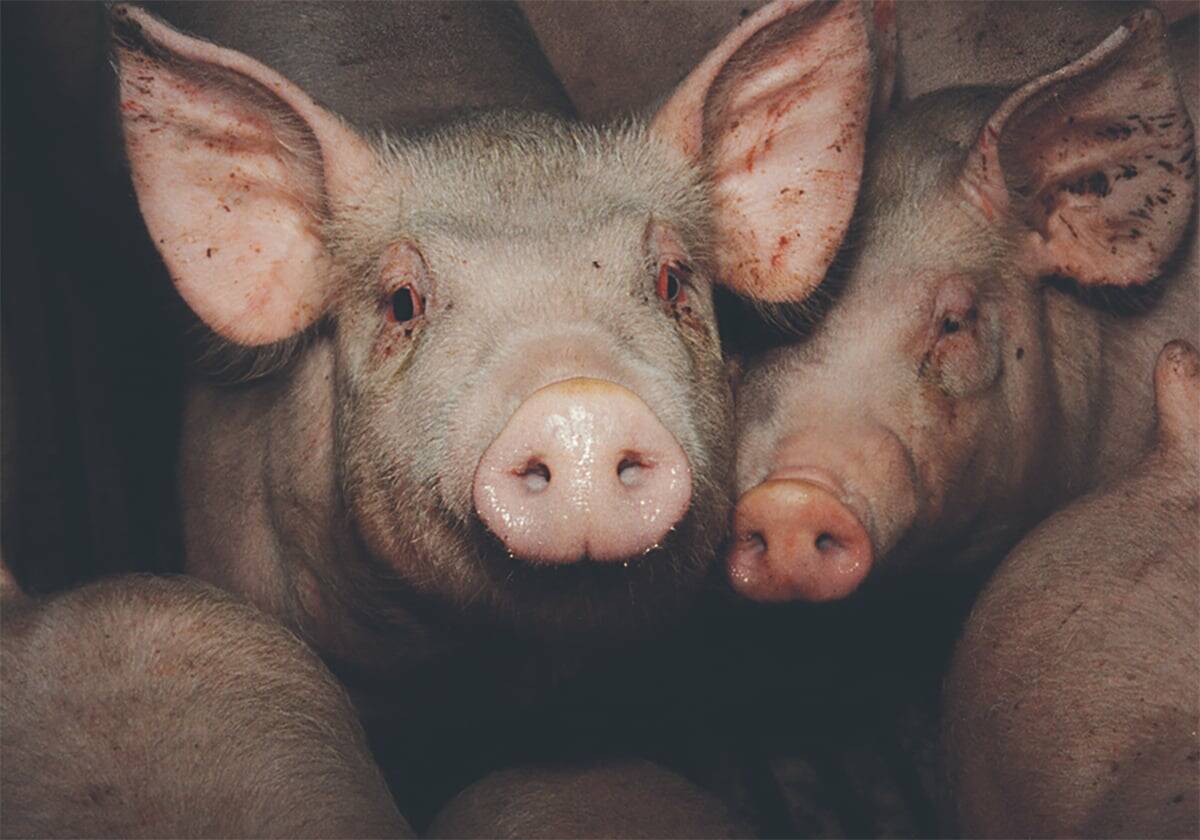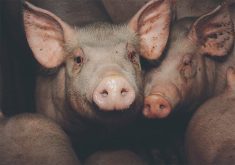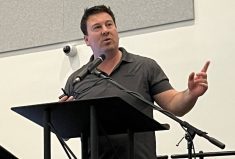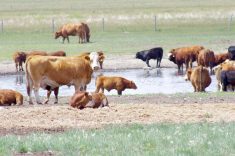The Canadian Wheat Board says its decision to buy two Great Lakes shipping vessels will mean mean higher returns and lower costs for farmers.
CWB chair Allen Oberg of Forestburg said the decision to buy two new ships to haul Prairie grain to eastern ports will earn farmers $10 million a year, net of operating expenses, and help ensure the viability of the Great Lakes-St. Lawrence as a shipping option.
“This is a project that has a very solid business case and it’s going to serve farmers very well into the future,” Oberg told reporters at a news conference.
Read Also

Scientists discover cause of pig ear necrosis
After years of research, a University of Saskatchewan research team has discovered new information about pig ear necrosis and how to control it.
The CWB spends $70 to $75 million a year moving grain through the Great Lakes-St. Lawrence Seaway system to export. When its new ships begin operating in 2013, some of will be clawed back.
“I certainly don’t think this is a reckless investment,” Oberg said. “We’re looking at a payback period of less than eight years on this investment at an internal rate of return of over 15 per cent.
“Farmers elect a board of directors to make decisions on their behalf and we’ve always believed our organization has the ability to reduce their costs through the involvement in logistics, such as our involvement in rail hopper cars, and this investment in lake vessels is just a further extension of that.”
Vessel pool
The two ships the CWB is buying are part of a seven-ship purchase by Algoma and Upper Lakes. The ships, which are being built in China, will be managed and operated by Seaway Marine Transport, which is jointly owned by Algoma and Upper Lakes.
“These vessels will operate as part of a vessel pool with our partners so we’ll be sharing in any profits that are generated by that pool,” Oberg said.
Although the CWB exports most of its grain through West Coast ports, about five million tonnes is goes through eastern ports annually, CWB chief operating officer Ward Weisensel said in an interview. Around three million tonnes of the eastern movement is shipped in aging lake vessels. The last one was built in 1983 with an investment from the CWB.
“At some point the decision had to be made to renew the fleet,” Weisensel said.
Meanwhile, the CWB is projecting eastern movement will continue to increase. Populations are growing faster in Africa, the Middle East and Latin America than anywhere else, Rick Steinke, the CWB’s vice-president of logistics told the Fields on Wheels conference in Winnipeg Dec. 3.
“It means we’re going to see more demand out of the Atlantic and it means we’re more bullish on eastern movement and north movement than we are in western movement,” Steinke said, looking out to 2018.
CWB president and CEO Ian White said the CWB will pay for the ships over four years.
“That works out to about $1 a tonne (on every tonne of grain marketed) over the four years,” he said. “The boats have a lifespan of about 25 years so farmers will continue to reap the financial benefits well into the future.”
The grain fleet will haul grain east from Thunder Bay and Duluth and backhaul iron ore to Canadian and American steel mills.
The new Equinox vessels will be state of the art, according to White. Although the ships’ dimensions will be the same as existing lakers to fit through seaway locks, the new ships will hold 30,000 tonnes, up 5,000 tonnes thanks to an improved hull design, he said. The new ships will be faster, use less fuel and be more environmentally friendly.
The Keystone Agricultural Producers (KAP), Canadian Federation of Agriculture, National Farmers Union and Farmers of North America have endorsed the CWB’s plan based on projections that it will save farmers money and improve grain movement.
The Western Canadian Wheat Growers Association (WCWGA), Grain Growers of Canada and Western Barley Growers Association have criticized the purchase and Agriculture Minister Gerry Ritz says the CWB should focus on getting higher prices for farmers instead of buying ships.
“We believe this decision will put $65 million dollars of farmers money at risk and could lower pool returns,” Ritz said in an emailed statement. “Farmers have not been consulted on this decision and their money should not be spent recklessly.”
———
“Atsomepointthedecisionhadtobemadetorenewthefleet.”
WARD WEISENSEL
CWB














